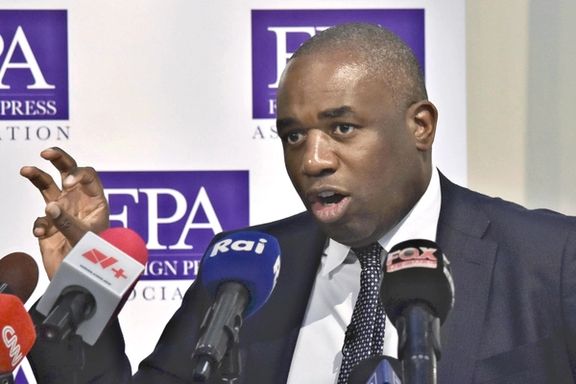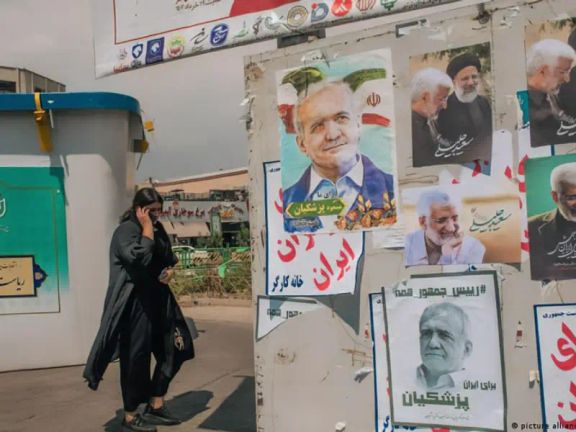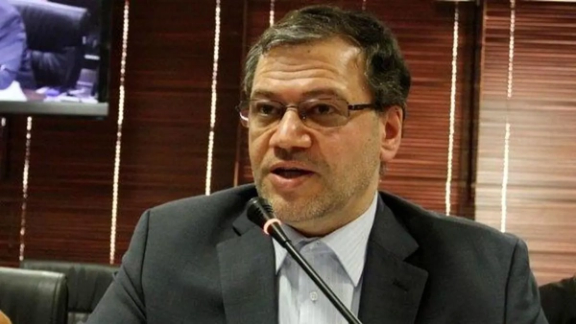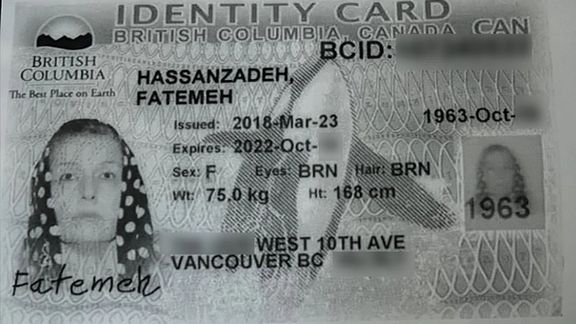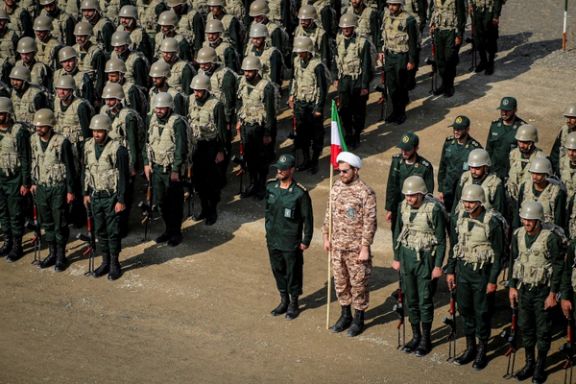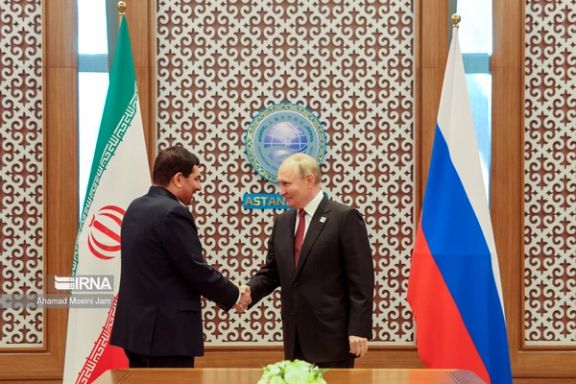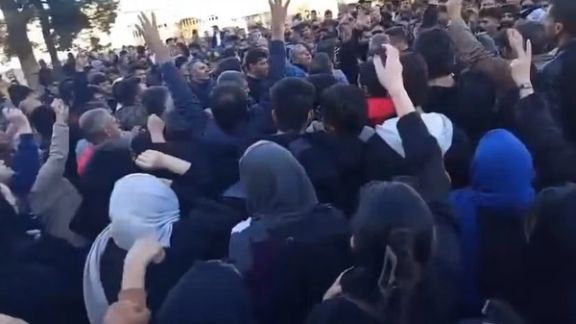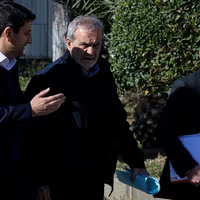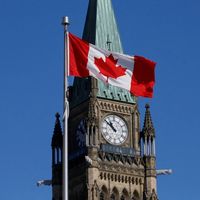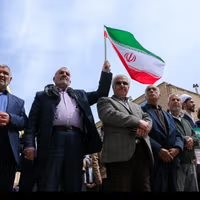According to Germany's Süddeutsche Zeitung, the legal department of the European Union's foreign action service has officially begun the process to possibly designate the IRGC.
It is a victory for advocacy groups after at attempt by the European Parliament to press the European Union to designate the IRGC failed last year.
It also comes as a stream of Iranian plots have been foiled in recent months in countries including Sweden and Belgium. As far back as 2022, a plot to attack a synagogue in Germany led to the latent summoning of the Iranian ambassador this year as more of Iran's covert activities come to light.
Germany’s largest opposition party, the Christian Democratic Union, is one of the players which has been pushing the European Union to take a tougher position on Iran, including designating its IRGC.
The US designated Iran’s military apparatus in 2019 and the latest country to join ranks, was Canada, where Iranian dissidents have also been targeted by IRGC plots to kill and kidnap.
In addition to demanding action to curb Iran’s ongoing nuclear program, in the face of global sanctions, the CDU wrote a position paper calling for a dramatic change in path as Iran’s proxies wreak havoc across the Middle East and beyond.
Lawmakers suggest a policy aimed at further isolating Iran, which is also under sanctions for supporting Russia’s war on Ukraine. They suggest working with moderate Arab states to form an ‘anti-Iran coalition’, including signatories of the Abraham Accords such as the United Arab Emirates, and Saudi Arabia.
Confronting Iran's nuclear ambitions, the CDU lawmakers call for a total halt to the program. Just weeks ago, the UN’s nuclear chief warned Iran was ‘weeks not months’ from a nuclear weapon.
The CDU has proposed that an alliance between Germany, France, Britain, and the United States, must work harder to prevent Iran’s nuclear armament, including imposing tougher sanctions on countries helping Iran evade their own
This would potentially impact countries such as China which his Iran’s biggest consumer of oil.
The policy recommendations also tackle Iran’s human rights abuses at home, including the disproportionate persecution of women and girls, which the UN has branded "gender apartheid".
The policy document has proposed banning any institution in Germany that serves as an information source or influence channel for the Iranian regime, including the immediate closure of the Islamic Center in Hamburg.
This week, the German Federal Administrative Court ruled that the center was affiliated with the Iranian regime and branded it an "extremist Islamic organization” calling its activities “extremism”, as per the Federal Office for the Protection of the Constitution of Germany.
Currently designated as a terrorist group by Israel, the United States, Bahrain, Canada, Saudi Arabia, and Sweden, the EU has taken a softly softly approach, aiming to continue negotiations regarding Iran’s nuclear program.
The calls to designate the IRGC were echoed this week in a statement by 11 European lawmakers across eight countries and the European Parliament.
At the annual Israel Allies Foundation European Summit, held at the Dutch Parliament in the Hague, lawmakers addressed the threats the IRGC poses specifically to Jewish and Israeli targets.
In May, Israel’s Mossad security service revealed plots against a string of Israeli embassies, including those based in Europe, in addition to Jewish and Israeli targets.
“We recognize the importance of addressing state-sponsored terrorism by the Iranian regime against the State of Israel and Jewish communities across Europe and therefore call on the European Commission to list the IRGC on the European terror list,” the statement read.
With representatives from the Czech Republic, Italy, Lithuania, Netherlands, Norway, Slovakia, Portugal and Estonia, it comes as Iran’s proxies continue to wage war on Israel.
Since the October 7 atrocities of Iran-backed Hamas, where at least 1,200 mostly civilians in Israel were murdered and another 250 taken hostage, Iran’s proxies in Lebanon, Yemen, Syria and Iraq have launched attacks on Israel from across its borders.
They have also targeted US positions in the region in retaliation for President Joe Biden’s support of Israel’s right to self defense.
The groups all say their attacks will not stop until a full ceasefire is achieved in Gaza. Israel says the military campaign in the strip will continue until the full eradication of Hamas and the return of the remaining 120 hostages, over 40 of them are known to have died in captivity.
